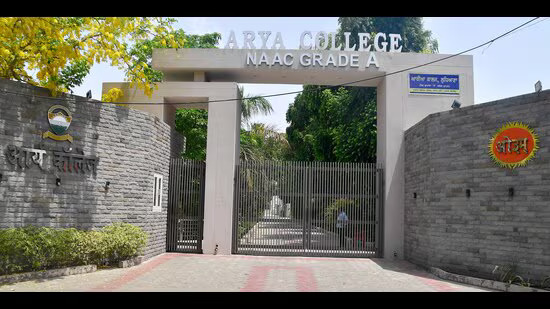In an alarming revelation, it has come to light that 14 colleges in Ludhiana are operating without full-time principals, in clear violation of the University Grants Commission (UGC) regulations. This situation raises significant concerns about the quality of education and administrative efficiency in these institutions. The absence of full-time leadership in colleges can have far-reaching implications on academic standards, student performance, and overall institutional integrity.
UGC Regulations and Their Importance
The UGC, as the apex body for higher education in India, has established guidelines to ensure the smooth functioning and academic excellence of colleges and universities. One of the key mandates is that every college must have a full-time principal to oversee academic and administrative operations. This regulation is crucial because:
- Leadership and Vision: A full-time principal provides leadership and sets the vision for the institution. They play a pivotal role in academic planning, faculty development, and student welfare.
- Administrative Efficiency: Effective administration requires a dedicated leader who can make informed decisions, manage resources, and ensure compliance with educational standards and policies.
- Quality of Education: The principal’s presence is integral to maintaining academic standards, fostering a conducive learning environment, and addressing the needs and concerns of students and faculty.
Current Situation in Ludhiana Colleges
Despite these clear regulations, 14 colleges in Ludhiana have been operating without full-time principals. This scenario has led to several challenges:
- Academic Decline: Without full-time leadership, the academic quality in these colleges is at risk. There is a lack of strategic planning, which affects curriculum development, teaching standards, and student performance.
- Administrative Challenges: The absence of a full-time principal leads to administrative inefficiencies. Day-to-day operations are often left in the hands of interim or acting heads who may lack the authority or experience to make critical decisions.
- Faculty and Student Issues: Both faculty and students face difficulties when there is no stable leadership. Issues related to grievances, academic guidance, and institutional support remain unaddressed, leading to dissatisfaction and demotivation.
Reasons Behind the Violation
The reasons for these colleges not appointing full-time principals are varied and complex. Some of the common issues include:
- Lack of Qualified Candidates: There may be a shortage of qualified and experienced candidates willing to take up the principal’s position.
- Political and Bureaucratic Hurdles: Appointments may be delayed due to political interference, bureaucratic red tape, or internal conflicts within the institution.
- Financial Constraints: Some colleges might be facing financial difficulties that prevent them from offering competitive salaries to attract qualified candidates.
Impact on Students and Faculty
The absence of full-time principals adversely impacts both students and faculty. Students suffer from a lack of guidance, poor academic management, and inadequate support services. Faculty members face challenges related to career development, research opportunities, and administrative support. The overall academic environment becomes less vibrant and more chaotic, affecting the morale and performance of everyone involved.
The Way Forward
Addressing this issue requires a multi-faceted approach:
- Urgent Appointments: The concerned authorities must expedite the appointment process to fill the vacant principal positions with qualified candidates.
- Strengthening Recruitment Processes: Implementing a transparent and efficient recruitment process can help in attracting and retaining qualified leaders.
- Regular Monitoring: The UGC and other regulatory bodies should conduct regular audits to ensure compliance with their regulations and take stringent actions against institutions that violate them.
- Support and Training: Providing support and training programs for potential candidates can help in building a pool of qualified individuals ready to take on leadership roles in educational institutions.
Sponsored
FACTS Transcripts
Apply for a University document anywhere
https://www.factstranscript.com
Quick Transcripts for popular Universities, check your University name now and get started. We help you to get your transcript application online which is accepted for use of IRCC.
No DD, NO Paperwork. 100% Authentic, Reliable.
FACTS Transcripts Charges · Reviews · Assam Universities · Home · Know your University










